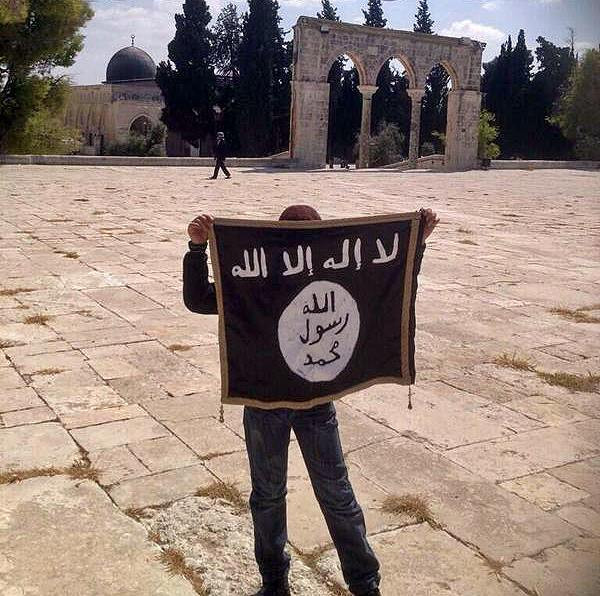Isis, Obama and the Mother of All Conspiracy Theories

Thirteen years ago, the US was the victim of an attack that sparked numerous conspiracy theories.
Al-Qaida's assaults on the World Trade Center and the Pentagon led to all manner of weird and wacky theories, suggesting the American government abetted the terrorists who killed thousands of its citizens.
In the 13 years since 9/11, those false flag narratives have been refuted ad nauseam, their proponents exposed and debunked. Yet now the conspiracy theories are at it again, suggesting another Islamist group is benefiting from underhand US support.
The theorists claim that, despite Barack Obama's campaign to wipe out Isis (known as Islamic State), the militant army is in fact a creation of the American government.
It seems the theory's most vociferous and dedicated supporters are in Iran. A recent article in the New York Times sought the views of a broad cross-section of Iranian society, and found many people were convinced IS was conceived by the Washington power-brokers in their quest to destroy Tehran.
The paper quoted an Iranian supermarket owner as saying: "Come on, you know who has created Isis." Meanwhile a radiologist opined that "America supports any group that breaks a ring of this Iran-Syria-Lebanon-Palestine chain".
Historian Housang Tale proferred a similar view, saying: "Without groups like IS we can revive our empire and become the biggest power in the region."
The report followed a story by the state-run Islamic Republic News Agency (IRNA), which cited a supposed interview with National Security Agency (NSA) leaker Edward Snowden. During the interview, Snowden allegedly said the US, Britain and Israel created "a terrorist organisation capable of centralising all extremist actions across the world."
Iran's Supreme Leader Ayatollah Ali Khamenei has often publicly expressed his views on the relations between US and IS.
In an address to the nation, Khamenei reminded Iranians that terror group al-Qaida was a creation of the Central Intelligence Agency (CIA), adding: "There is no doubt that these movements are created by Western powers and their regional agents."
Iranians are not the only ones
Given Tehran's vehement, long-standing opposition to all things American, perhaps it's not surprising that the new conspiracy theory should have so many devotees in Iran. Yet Iranians are not the only ones who believe IS is a creation of the US.
According to the Final Call, an American newspaper defined by its creators as "the official communications organ of the Nation of Islam", the US and other countries such as Turkey and Saudi Arabia "have been arming, funding and training members of Isis since 2007".
The BBC recently reported that many Lebanese people believe the US is behind the creation of IS and that former US Secretary of State Hillary Clinton admitted it in her latest book, Hard Choices.
"Most people here believe the US and Saudi are one and when it comes strictly down to oil money; the ultimate benefactor from the whole IS debacle is Saudi/the US. As history has taught us, it is usually the benefactors who are the instigators," said Amer Murad, a native of Beirut.
State-run Palestinian daily newspaper Al-Hayat Al-Jadida published several articles in August, in which it said the US are responsible for the creation of IS. "The radical terrorists of IS and those like them, who were created by Israel and the US, are paving the way for Israel to act like them," one of the articles read.
Why do so many support conspiracy theories?
There are a variety of reasons why so many people across the Muslim world believe America is supporting a group that champions a warped and barbaric version of their faith.
According to journalist Medhi Hasan, the tendency to believe the Islamist terrorists are a creation of the US is rooted in the events that took place 13 years ago.
"Conspiracy theories are rife in both Muslim-majority countries and Muslim communities here in the West. The events of 9/11 and the subsequent 'war on terror' unleashed a vast array of hoaxers, hucksters and fantasists from Birmingham to Beirut," Hasan said.
Meanwhile, Octavius Pinkard, a Brussels-based specialist in foreign policy analysis and Middle East politic, told the BBC America's perennial tendency to get involved in conflicts overseas and install new governments has encouraged the latest torrent of speculation.
"Such theories abound, largely because Washington has shown a propensity for outsourcing regime change" Pinkard said.
"Support for insurgent groups in that context is certainly not a new practice and, as of late, has not been a particularly effective one."
Whatever the reasons behind the latest theories, it seems that, no matter how much force America throws at IS over the next few weeks, substantial swathes of the Arab world will believe they were the villains all along.
© Copyright IBTimes 2025. All rights reserved.






















